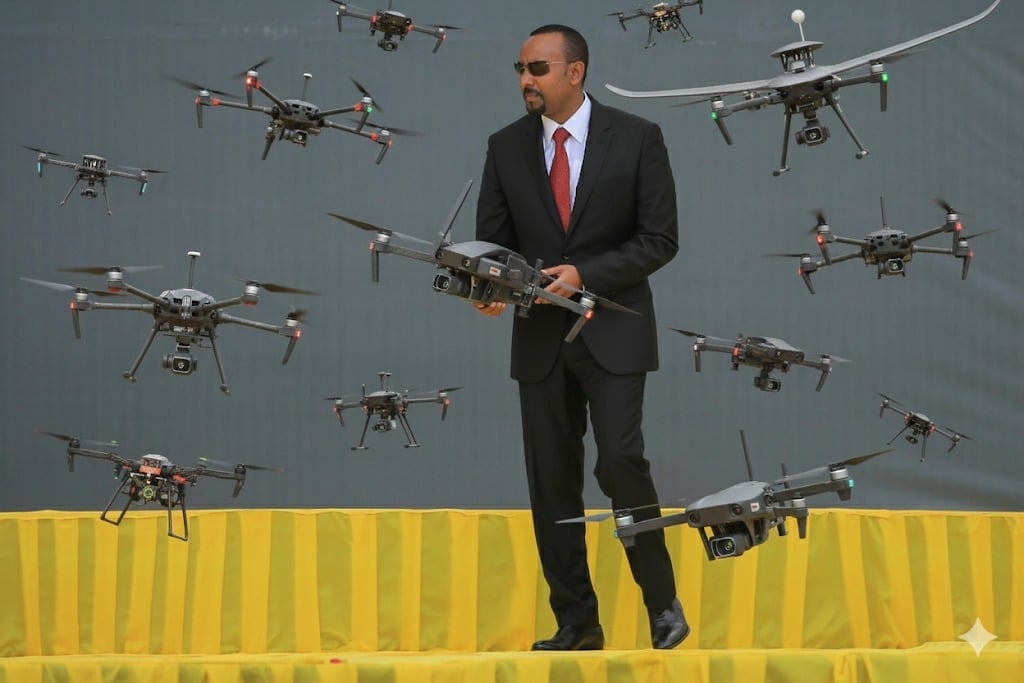
Addis Ababa – Prime Minister Abiy Ahmed’s unveiling of Ethiopia’s drone production line at the Aero Abay facility has stirred sharp criticism, with many branding the technology a tool of destruction rather than progress.
Abiy highlighted drones capable of “destroying enemy groups” before self-destructing, alongside smaller surveillance models, claiming they represent self-reliance and modernization. Yet, rights groups and observers say the program has already translated into devastating strikes on civilians in Tigray, Amhara, and Oromia.
Weapons of War, Not Tools of Prosperity
While the government promotes drone manufacturing as a symbol of sovereignty and economic growth, critics call it a merciless military expansion that deepens internal repression. International watchdogs have accused Ethiopian forces of deploying drones to bomb markets, residential areas, and health centers.
Factories of Fear
The Aero Abay and SkyWin Aeronautics factories in Addis Ababa produce both combat and reconnaissance drones, with advanced AI navigation. Officials insist these facilities reduce reliance on foreign suppliers, but human rights advocates say they represent state-sponsored violence repackaged as progress.
Regional Ambitions, Domestic Costs
Ethiopia’s government has floated plans to export drones, with Nigeria considered a potential partner. But as Addis Ababa markets its defense capabilities abroad, at home, communities continue to mourn the victims of drone strikes. For many Ethiopians, the program symbolizes not prosperity, but fear and destruction.
Accountability in Question
Abiy Ahmed insists drones will secure Ethiopia’s sovereignty and prosperity. Yet without transparency, civilian protections, or democratic oversight, critics warn the project risks cementing Ethiopia’s image as a country where technology fuels tyranny rather than peace.
